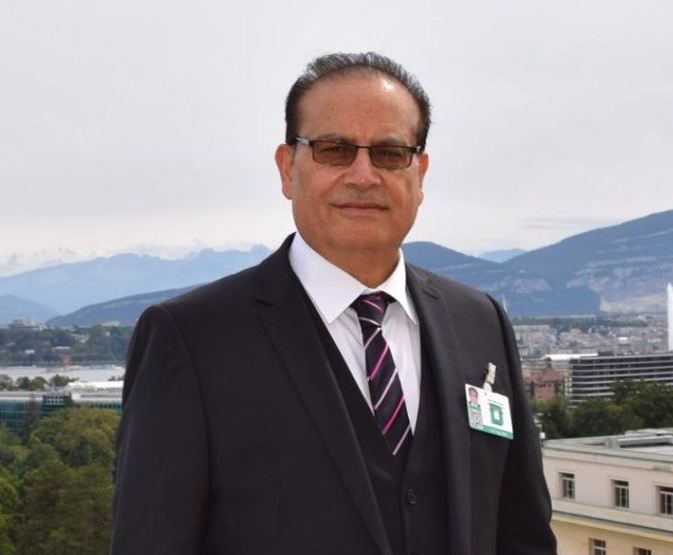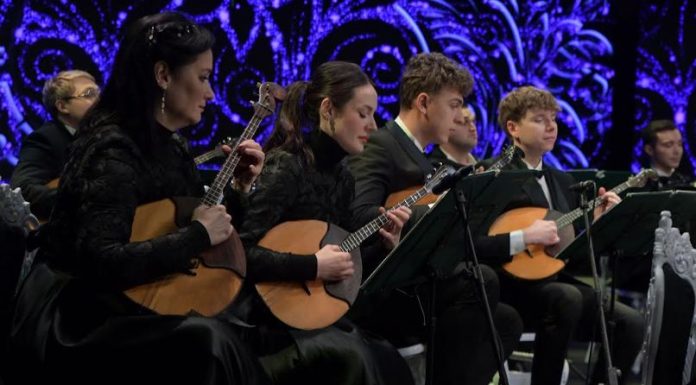By: Qamar Bashir
Dr. Arif Alvi, the former President, possesses a wealth of attributes that make him a distinguished figure in the political arena. In essence, Dr. Alvi embodies the qualities of an astute politician with a positive, creative, and non-violent approach to governance. Dr. Arif Alvi’s political journey began in 1979 with Jamaat-e-Islami (JI), where he opposed martial law under General Zia-ul-Haq. He later became a founding member of PTI in 1996, serving as its Sindh president. Despite navigating through General Pervez Musharraf’s martial law, he secured a National Assembly seat from Karachi in 2013 and won against MQM-P heavyweight Dr. Farooq Sattar in 2018. Known for his loyalty to Imran Khan, Alvi assumed the presidency in 2018, navigating Pakistan’s volatile political landscape effectively with a few hiccups here and there.
Having successfully completed his tenure as the supreme commander of the armed forces of Pakistan and head of all three pillars of the state, Dr. Alvi now faces a pivotal moment in his political career. With the leadership vacuum in PTI growing wider each passing day, exacerbated by the incarceration of its founding chairman, Mr. Imran Khan, the need for Alvi to assume an active role in the party has never been more apparent. Imran Khan’s likely prolonged detention underscores the urgency for Alvi to step up, especially as other key leaders of PTI find themselves either in jail or in hiding due to alleged state oppression. As PTI grapples with these unprecedented challenges, Alvi’s leadership and guidance could prove instrumental in navigating the party through turbulent times and charting a course towards stability and resilience.
PTI’s leadership is currently dominated by lawyers, often labeled as “paratroopers” by analysts. These individuals lack a political background and grassroots support, making them ill-equipped to handle the intricacies of political maneuvering effectively. Their tendency to resort to legal battles instead of leveraging popular support has been detrimental to the party’s interests. This lack of political acumen has significantly undermined PTI’s standing and effectiveness, leading to its near-complete disarray.
Their failures have been glaring: firstly, their inability to defend their own chairman entangled in numerous frivolous cases and subsequent incarceration. Secondly, their failure to secure the release of key political figures and thousands of workers unjustly imprisoned. Thirdly, the loss of the party’s election symbol resulted in a significant blow to PTI’s electoral prospects and brand value. Fourthly, their actions inadvertently led to the absorption of newly elected members into a sectarian political party, further tarnishing PTI’s identity. Lastly, they were unable to defend the allocation of reserve seats for women and minorities, strengthening rival parties at PTI’s expense. These missteps have not only weakened PTI but have also alienated certain segments of its support base.
Their professional mindset predisposes them to view fellow lawyers as adversaries, contributing to a lack of unity within PTI. This absence of cohesion, a hallmark of effective political parties, has left PTI fractured. Divergent opinions among self-assumed leaders mirror the courtroom dynamics of lawyers competing for favorable outcomes, resulting in internal discord and confusion. As a consequence, PTI finds itself in a state of disarray, unable to present a unified front or pursue a cohesive agenda.
During the PTI government, I had the privilege of serving as Director General to two PTI ministers, Fawad Hussain and Shibli Faraz, and developed a close relationship with Mr. Shah Mehmood Qureshi. From my experiences accompanying Mr. Qureshi on official and unofficial engagements as Press Attache in Kuala Lumpur, Malaysia, and later in Geneva, Switzerland, I observed their exceptional abilities. In my opinion, their presence at the forefront of PTI leadership, the lawyers and Mr. Raoof Hassan had a marginal role in PTI decision making. But in the absence of the political leadership, despite their sincere intentions, these lawyers-turned-PTI leaders have inadvertently damaged the party’s standing and undermined the political capital built by PTI’s founder, Mr. Imran Khan.
While PTI owes gratitude to lawyers and Mr. Raoof Hassan, who is renowned for his exceptional writing and keen political insight, it is undeniable that they cannot match the experience and expertise of genuine politicians due to many pressing reasons.
Genuine politicians bring years of political activism, governance, and public service to their roles, allowing them to navigate complex challenges with finesse. Their understanding of political dynamics, constituency needs, and policymaking processes equips them to handle intricate political maneuvering, coalition-building, and effective constituency engagement. In contrast, lawyers-turned-politicians may initially lack direct political experience, presenting challenges in grasping the nuances of political dynamics and effectively engaging with constituents.
Secondly, genuine politicians often have strong roots in their constituencies and a profound connection with the concerns and aspirations of the people they represent. Their longstanding presence and engagement within communities allow them to establish meaningful connections with constituents and address their needs effectively. Conversely, lawyers turned politicians may encounter difficulties in building such connections, especially if they lack prior experience in community engagement or grassroots organizing.
Thirdly, genuine politicians typically demonstrate strong leadership qualities, including the ability to make tough decisions, build consensus, and inspire confidence among party members and supporters. Their leadership is characterized by a keen understanding of political dynamics and a commitment to advancing the interests of their constituents. While lawyers turned politicians may bring analytical skills and legal expertise to the table, they may face challenges in adapting their approach to the broader demands of political leadership, including building alliances and navigating internal party dynamics.
Given the context outlined above, it becomes apparent why it is crucial for former President Alvi, a close associate of Imran Khan and someone with deep ties to PTI, to step forward and provide political leadership to the party.
As a genuine politician with years of experience in governance and public service, Alvi possesses the necessary acumen to navigate the complex challenges faced by PTI. His understanding of constituency needs and ability to establish meaningful connections with constituents can help reinvigorate the party’s grassroots support.
Moreover, Alvi’s demonstrated leadership qualities, including his track record of making tough decisions and building consensus, make him well-suited to unite the party and provide a clear direction amidst internal turmoil. His commitment to advancing the interests of PTI supporters and addressing their concerns underscores the importance of his leadership at this critical juncture.
By stepping forward, Alvi can work towards reclaiming PTI’s iconic symbol and disassociating it from sectarian affiliations, thereby restoring the party’s brand value and integrity. Additionally, his efforts to secure the release of Imran Khan and other imprisoned party members would signal a commitment to upholding democratic principles and ensuring justice for all PTI members.
With over ten months of experience working closely with Dr. Arif Alvi as his press secretary and media advisor, I can attest to his wisdom, articulate nature, and exceptional team-building skills. As a statesman, Dr. Alvi envisions a vibrant, forward-looking, modern, and prosperous Pakistan. During his over five-year tenure, he persistently masterminded Pakistan-specific COVID-19 protocols, saving many lives and positioning the country favorably compared to others worldwide. Dr. Alvi emphasized the importance of fast-tracked education and skill development through smart and effective short-duration courses to uplift illiterate and unskilled segments, transforming them into wealth-generating assets. He advocated for leveraging the latest technological advancements such as quantum computing, internet of things, big data management, artificial intelligence, and virtual reality. Additionally, he highlighted the significance of research and development as essential for achieving fast-track progress and development. On the social front, Dr. Alvi’s advocacy for early detection of breast cancer, addressing mental health issues, and promoting inclusivity for differently-abled individuals underscores his commitment to social causes.
Overall, Alvi’s leadership is essential in reasserting PTI’s position as a formidable political force, reuniting the party under a unified vision, and overcoming the challenges that lie ahead. His experience, integrity, and dedication to serving the people make him a fitting candidate to lead PTI effectively and take the country towards a brighter future.
By: Qamar Bashir
Press Secretary to the President (Rtd)
Former Press Minister at Embassy of Pakistan to France
Former MD, SRBC












